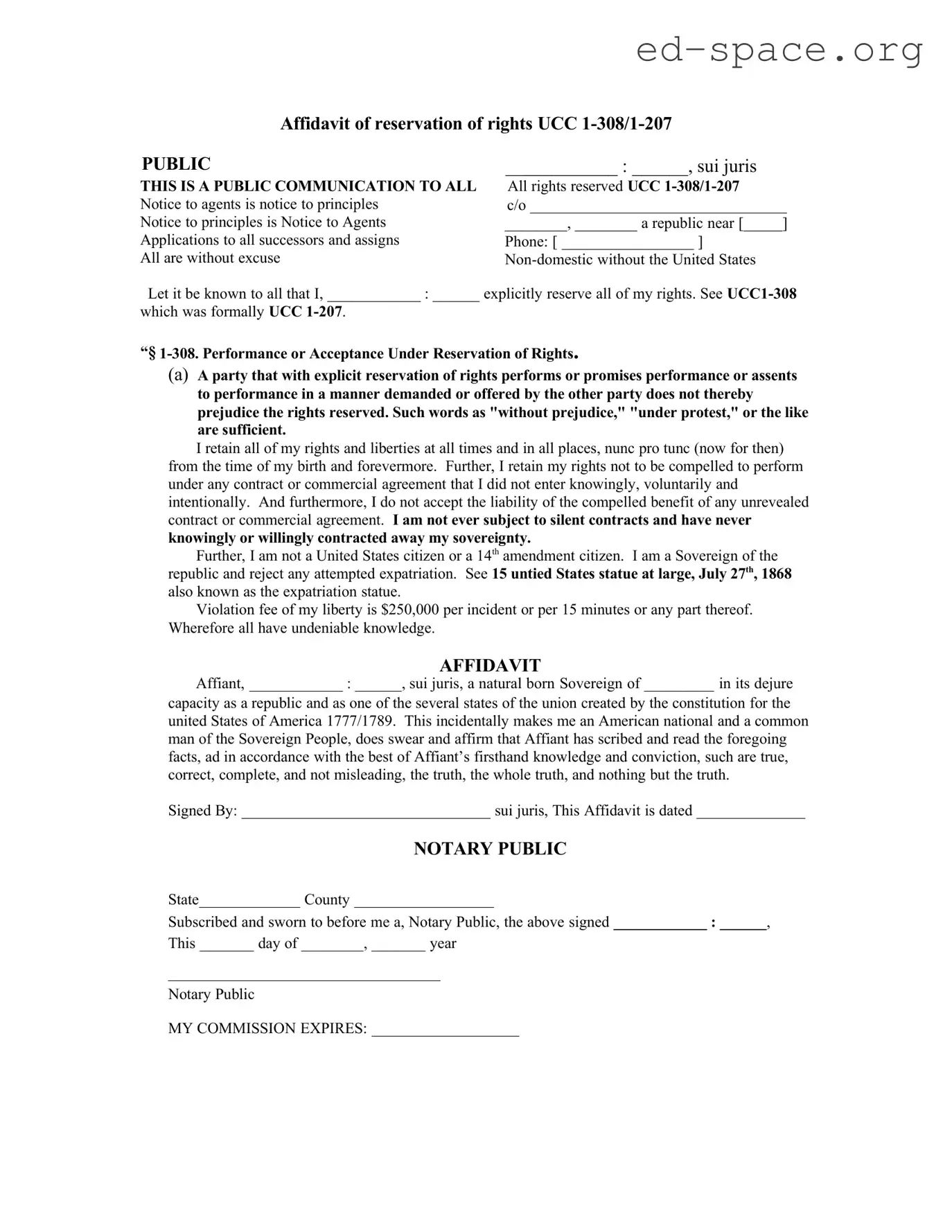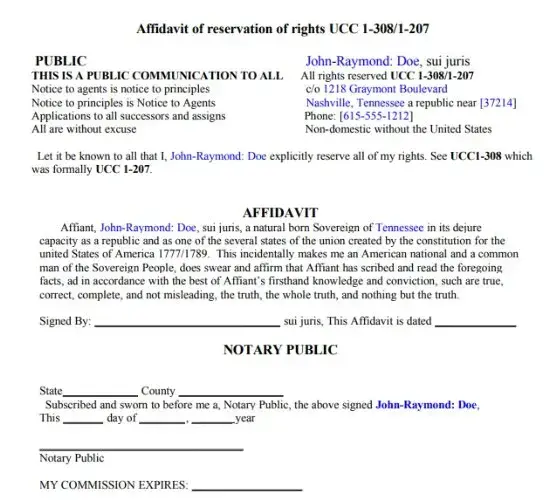
___________________________________
Affidavit of reservation of rights UCC 1-308/1-207
PUBLIC
____________ : ______, sui juris
THIS IS A PUBLIC COMMUNICATION TO ALL All rights reserved UCC 1-308/1-207
Notice to agents is notice to principles
c/o _________________________________
Notice to principles is Notice to Agents
________, ________ a republic near [_____]
Applications to all successors and assigns
Phone: [ _________________ ]
All are without excuse
Non-domestic without the United States
Let it be known to all that I, ____________ : ______ explicitly reserve all of my rights. See UCC1-308
which was formally UCC 1-207.
Ҥ
1-308. Performance or Acceptance Under Reservation of Rights
.
(a) A party that with explicit reservation of rights performs or promises performance or assents
to performance in a manner demanded or offered by the other party does not thereby
prejudice the rights reserved. Such words as "without prejudice," "under protest," or the like
are sufficient.
I retain all of my rights and liberties at all times and in all places, nunc pro tunc (now for then)
from the time of my birth and forevermore. Further, I retain my rights not to be compelled to perform
under any contract or commercial agreement that I did not enter knowingly, voluntarily and
intentionally. And furthermore, I do not accept the liability of the compelled benefit of any unrevealed
contract or commercial agreement. I am not ever subject to silent contracts and have never
knowingly or willingly contracted away my sovereignty.
Further, I am not a United States citizen or a 14
th
amendment citizen. I am a Sovereign of the
republic and reject any attempted expatriation. See 15 untied States statue at large, July 27
th
, 1868
also known as the expatriation statue.
Violation fee of my liberty is $250,000 per incident or per 15 minutes or any part thereof.
Wherefore all have undeniable knowledge.
AFFIDAVIT
Affiant, ____________ : ______, sui juris, a natural born Sovereign of _________ in its dejure
capacity as a republic and as one of the several states of the union created by the constitution for the
united States of America 1777/1789. This incidentally makes me an American national and a common
man of the Sovereign People, does swear and affirm that Affiant has scribed and read the foregoing
facts, ad in accordance with the best of Affiant’s firsthand knowledge and conviction, such are true,
correct, complete, and not misleading, the truth, the whole truth, and nothing but the truth.
Signed By: ________________________________ sui juris, This Affidavit is dated ______________
NOTARY PUBLIC
State_____________ County __________________
Subscribed and sworn to before me a, Notary Public, the above signed ____________ : ______,
This _______ day of ________, _______ year
Notary Public
MY COMMISSION EXPIRES: ___________________


